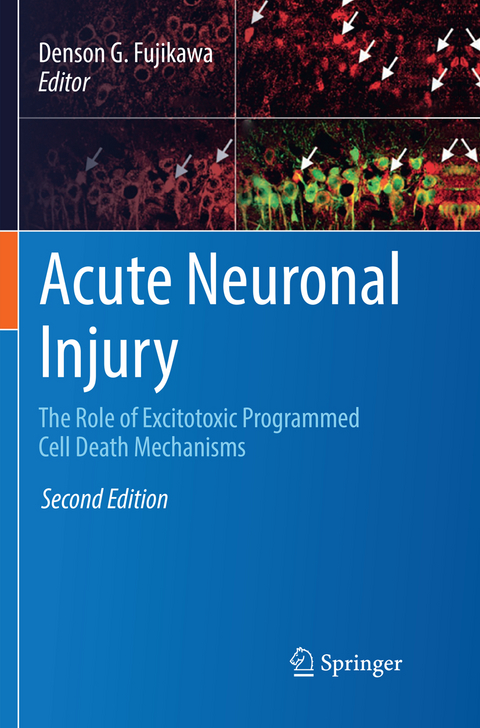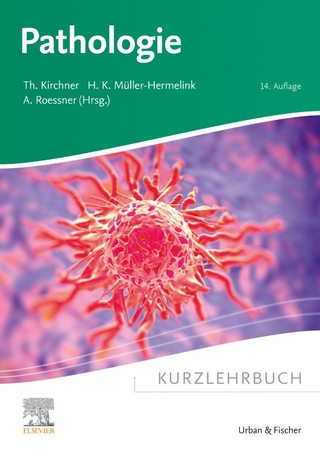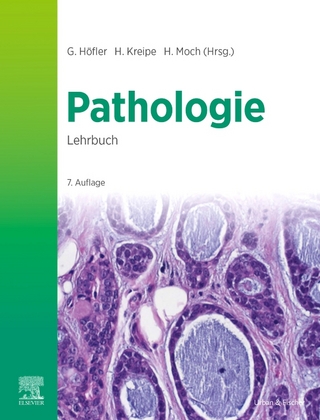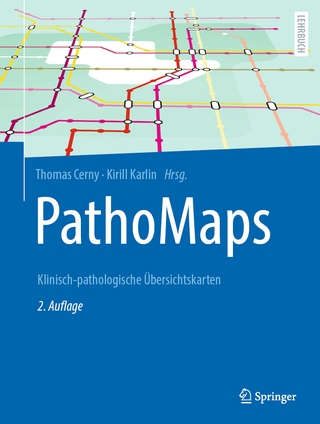
Acute Neuronal Injury
Springer International Publishing (Verlag)
978-3-030-08468-4 (ISBN)
An overview of the biochemical mechanisms that produce acute nerve cell death in the brain. Covers injuries and disorders including stroke, brain and spinal cord trauma, hypoglycemic coma, and prolonged epileptic seizures. All of these lead to high concentrations of calcium in nerve cells which, in turn, causes degradation of cytoplasmic proteins, cleavage of nuclear DNA, and eventually cell death.
The Second Edition contains 11 thoroughly updated chapters and 3 additional chapters that did not appear in the previous edition.
Dr. Denson Fujikawa is an Adjunct Professor of Neurology at the David Geffen School of Medicine at UCLA, a member of the Brain Research Institute at UCLA and a Staff Neurologist at the Department of Veterans Affairs Greater Los Angeles Healthcare System. His interest in mechanisms of nerve cell death in the brain began during a two-year epilepsy research fellowship with Dr. Claude Wasterlain, from 1981 to 1983. He is a Fellow of the American Academy of Neurology and is a member of the American Epilepsy Society, American Neurological Association, International Society for Cerebral Blood Flow and Metabolism and the Society for Neuroscience.
Introduction.- Excitotoxic programmed cell death involves caspase-independent mechanisms.- To survive or to die: how neurons deal with it.- Oxidative damage mechanisms in traumatic brain injury and antioxidant neuroprotective approaches.- Mitochondrial damage in traumatic CNS injury.- Neuroprotective agents target molecular mechanisms of programmed cell death after traumatic brain injury.- Involvement of apoptosis-inducing factor (AIF) in neuronal death following cerebral ischemia.- Apoptosis-inducing factor translocation to nuclei after transient global ischemia.- Necroptosis in cerebral ischemia.- Histological and elemental changes in ischemic stroke.- Hypoglycemic brain damage.- Activation of caspase-independent programmed pathways in seizure-induced neuronal necrosis.- Conclusion.
| Erscheint lt. Verlag | 14.12.2018 |
|---|---|
| Zusatzinfo | XII, 215 p. 39 illus., 24 illus. in color. |
| Verlagsort | Cham |
| Sprache | englisch |
| Maße | 155 x 235 mm |
| Gewicht | 355 g |
| Themenwelt | Medizin / Pharmazie ► Medizinische Fachgebiete ► Neurologie |
| Studium ► 2. Studienabschnitt (Klinik) ► Pathologie | |
| Naturwissenschaften ► Biologie ► Humanbiologie | |
| Naturwissenschaften ► Biologie ► Zoologie | |
| Schlagworte | Apoptosis • caspase-independent mechanisms • DNA • excitotoxicity • flow • necrosis • nervous system • Neurology • neurons • Neuroscience • Programmed Cell Death |
| ISBN-10 | 3-030-08468-X / 303008468X |
| ISBN-13 | 978-3-030-08468-4 / 9783030084684 |
| Zustand | Neuware |
| Informationen gemäß Produktsicherheitsverordnung (GPSR) | |
| Haben Sie eine Frage zum Produkt? |
aus dem Bereich


